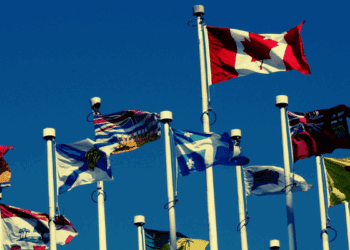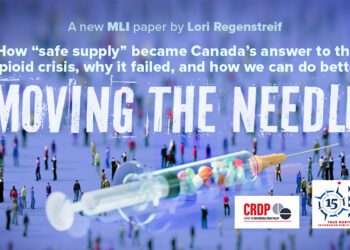Study by senior fellow Philip Cross on the extent of regulation in the economy follows work by former StatsCan chief statistician Munir Sheikh on tax expenditures. Together they reveal the true size of government in Canada for the first time.
OTTAWA, May 29, 2014 – The Macdonald-Laurier Institute has revealed for the first time the true size of government in Canada, with two studies finding that government controls nearly two-thirds of the economy, significantly higher than traditional measures suggest.
The second report, by MLI Senior Fellow Philip Cross, titled “Estimating the True Size of Government: Adjusting for regulation”, is released today. It calculates that 10.5 percent of the Canadian economy is subject to regulatory control.
This builds on an MLI report earlier this year, authored by former StatsCan chief statistician Munir Sheikh, that shows adding tax expenditures – measures that allow people to pay less in taxes if they adopt certain behaviours – to spending grows the size of government by 10.1 percent of GDP.
The most common measure of the size of government is program spending as a portion of GDP, which is around 44 percent. Add in tax expenditures and regulation, which accomplish government goals by other means but still have a major impact on the economy, and you arrive at a figure for government control of all spending of over 64 percent of GDP.
Getting a handle on the true size of government is important, says Cross, because regulation stifles growth, depresses productivity, raises prices for consumers and lowers living standards.
“A government truly committed to helping consumers would turn a critical eye to regulations designed to protect industries such as culture and finance where globalization and the Internet are already undermining the monopoly of traditional domestic suppliers”, Cross writes.
Cross’s definition leaves aside certain regulations, such as those covering the health and safety of workers or laws that protect the environment, because those restrictions apply equally to all businesses and don’t restrict pricing or competition.
Instead he chooses to look at regulations that affect supply or demand in an industry by significantly altering prices or the quantities of what is produced. Common examples include restricting foreign-owned firms from entering the banking or telecommunications industries or creating government-owned monopolies for utilities or postal delivery.
“Both tax expenditures and regulation allow governments to achieve policy goals without directly spending money”, Cross writes. “As such, with so many governments struggling to control their debt and deficits, there is the temptation for governments to use tax expenditures or regulations as a way to exert control over the economy while minimizing government spending”.
That would not be good news for the economy, Cross says. His report finds regulation exists mostly in the industries, such as agriculture, communications, finance, and utilities, which have a long history of government involvement.
“That the rationales for regulation in key industries are long-standing is a major problem for the future of regulation”, he says. “Justifications that were valid decades ago may no longer apply, particularly given the pace of technological change”.
Cross, a former StatsCan chief economic analyst, says the research is designed to fulfill a similar role to work previously done by Statistics Canada – which has been discontinued for more than 20 years – that measured the impact of regulation on consumer prices. He hopes it will kick-start more research that fine-tunes the results and delves further into the past to trace the impact of regulation in Canada over time.
“In the 21st century, where adaptability to rapid change is paramount, regulation increasingly seems a quaint relic of the 20th century”, Cross writes.
# # #
Philip Cross is a senior fellow with the Macdonald-Laurier Institute. He spent 36 years with Statistics Canada and in 2008 was appointed the department’s chief economic analyst.
The Macdonald-Laurier Institute is the only non-partisan, independent national public policy think tank in Ottawa focusing on the full range of issues that fall under the jurisdiction of the federal government.
For more information, please contact Mark Brownlee, communications manager, at 613-482-8327 x. 105 or email at mark.brownlee@macdonaldlaurier.ca. On Twitter @MLInstitute
Blog post image courtesy of Thompson Rivers University Flickr page.




